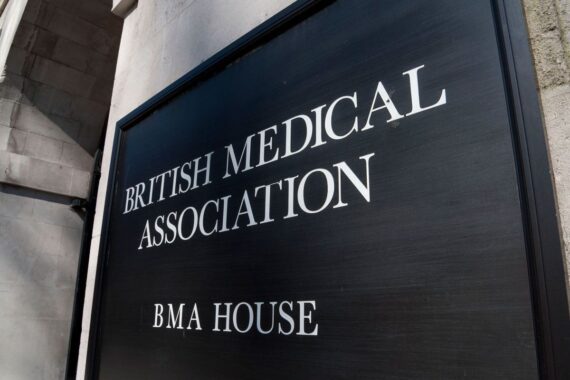The BMA has set up a working group preparing for GP industrial action, understood to be floating options going further than before.
The union said it was looking at ‘all options’, including ‘industrial or collective action’ after it rejected a contract offer from NHS England, which proposed linking more funding to access measures and mandating practices to offer automated access to patient records by 31 July.
The Government expressed a willingness to make changes to incentive schemes last week after talks between BMA GP committee negotiators and Neil O’Brien MP, the primary care minister.
But the BMA said that GPs would still be ‘forced to’ consider actions if a contract ended up being imposed.
Now the acting chair of the BMA GP committee, Dr Kieran Sharrock, said that ‘serious conversations’ have been happening for months as an ‘action working group’ is looking at creating ‘the tools we need to support GPs to take action.’
Pulse understands that options for action go beyond practices pausing all ARRS recruitment and disengaging from the demands of the PCN DES, which had already been discussed by the union in the past.
Dr Sharrock said: ‘Pleased to say our “serious conversation” started months ago with our Action Working Group who are creating the tools we need to support GPs and practices to take action.
‘Let’s hope Steve Barclay, Jeremy Hunt and NHS England sit down and negotiate so the group’s time has been wasted.’
He told Pulse that the group was launched last year to consider and develop options available to GPs in England should the committee decide to formally ballot the profession on industrial action.
He added: ‘No decision around a formal ballot has been made yet, but it cannot be ruled out as GP pressures continue to intensify.
‘The committee continues working towards securing a safe and fair new contract for patients and general practice staff for 2024 and beyond.
‘Consistent, regular discussions with GPC England, LMCs and patients will be vital in shaping what that new contract contains over the months ahead.’
It has been thought that ‘strike’ action, or something similar – with GPs withdrawing services for a day – would not be possible because GPs are not employed.
But legal experts have told Pulse that this kind of option was a possibility for GP practices. However, GP leaders have warned that there is little appetite for such action.
It comes after junior doctors in England have voted in favour of strike action and are preparing for a 72-hour walkout next month. The vote saw a record turnout of 77%, with 98% voting in favour of strikes.
GP trainees will not be barred from protesting during potential upcoming junior doctor strikes, but will only be able to join a picket line at or close to the hospital they are currently working in, the BMA has said.














Because GP partners are not employees proper strike action is difficult. They can’t for example just remove the pay for the GPs for a given day – would it be all core funding – so GPs are then having to pay for all the staff as well?
But it does allow more innovative approaches. The action should be something:
– that causes disruption or increases costs, but doesn’t cause deaths.
– that is still within the framework of the contract so there is no penalty or breach of contract notice
And there are loads of examples:
– All DVTs get sent to A+E instad of engaging in local pathways.
– no engagement in activity to reduce prescribing costs.
– All referrals by letter and ignoring any pre-referral workup required (as not contractual)
– All referrals sent to one hospital.
– Referral for all COPD, all asthma, all diabetes patients.
– Freestyle Libra for ALL diabetics
– Weight loss drug offered on FP10 to all patients who want them with a BMI >30. instead of restricting access to only those who meet strict criteria for a tertiary unit.
All ED treatment changed to branded treatment… on an FP10.
and so on.
“Considering all options” -. except the one option that is needed.
The NHS is the problem, and the answer is to leave the sinking ship.